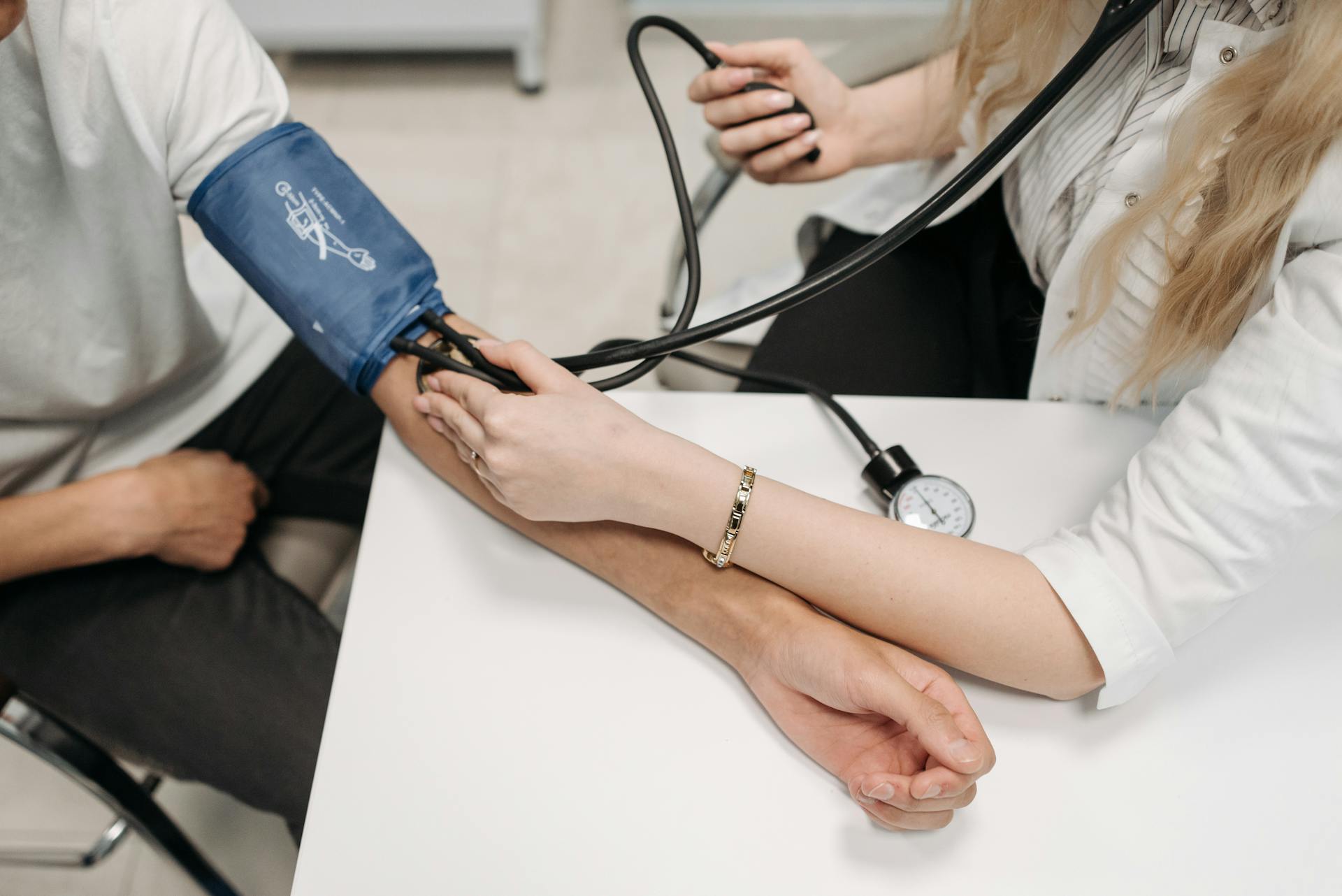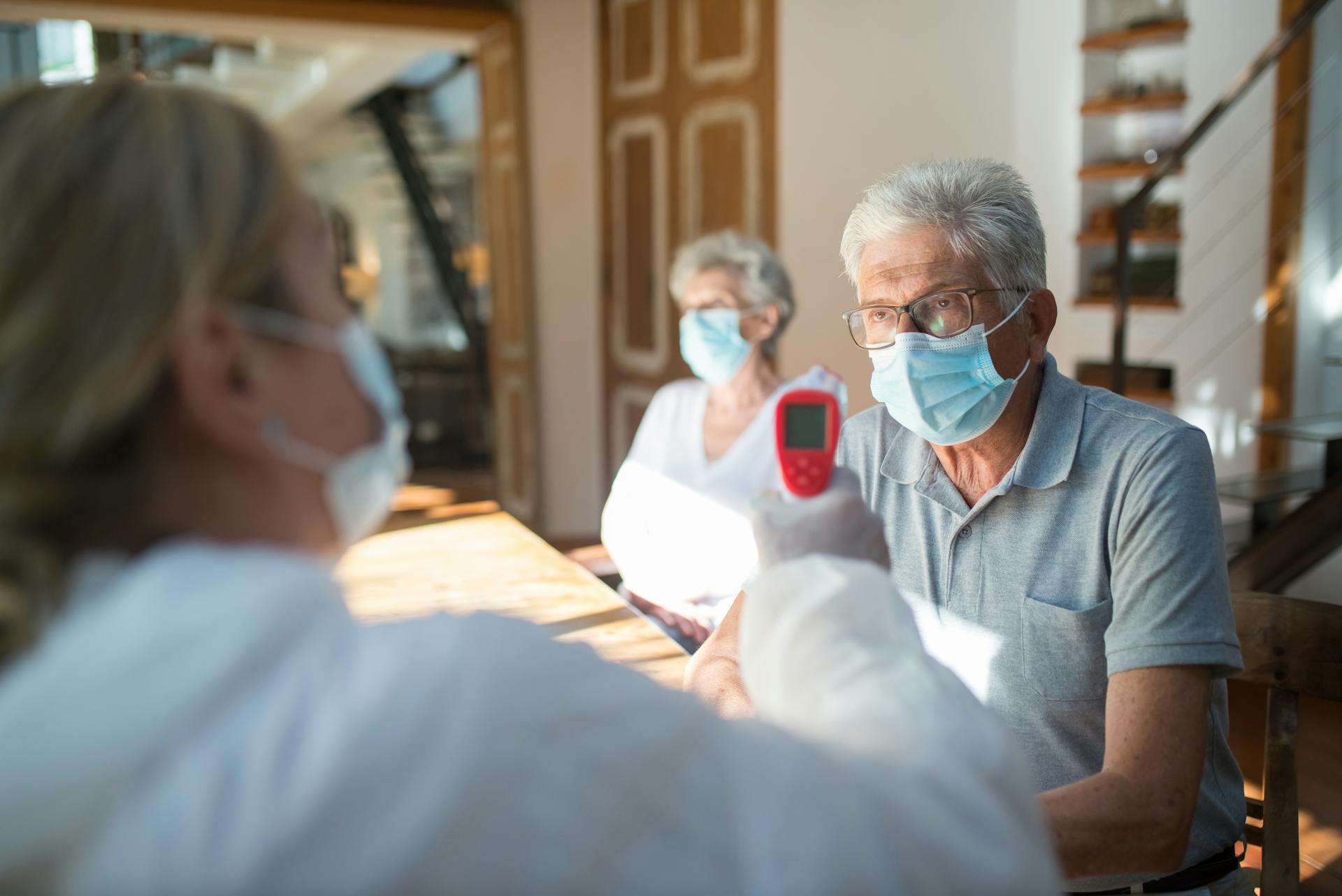Community health nursing aims to bring healthcare directly into communities by working to improve health and prevent illness among all community groups, especially those most in need, through outreach, education, and proactive care beyond the typical hospital setting.
The World Health Organization’s Constitution declares that its primary goal is “the attainment by all peoples of the highest possible level of health.” This vision is not only central to the WHO’s founding document but is also embedded in numerous global agreements, including the Universal Declaration of Human Rights and the Sustainable Development Goals (SDGs).
To make this vision a reality, nursing has long been a valuable asset, supporting individuals, families, and entire communities in their health journey. While nurses have long provided care in hospitals and clinical settings, their reach has expanded well beyond these walls to meet people where they live and work.
Community health nursing is a career path that directly fulfills this mission. But before we explore why it’s such a rewarding field and definitely one you should consider if you believe nursing to be your calling, it’s important to first answer two key questions: “What is community health nursing?” and “What does a community health nurse do?”
What Is Community Health Nursing?
Community health nursing is a specialized branch of nursing that combines the basic principles of nursing with those of public health. Unlike traditional nursing, this kind of nursing doesn’t focus on individual patient care in clinical settings. Instead, it addresses health issues at the population level and aims to promote health and prevent illness in specific geographical areas or demographic groups.
Through initiatives like health education, immunization programs, and disease prevention efforts, community health nurses help reduce the burden of illness and improve the quality of life within communities. These nurses work to reach vulnerable and underserved groups, such as low-income families, rural populations, and people without health insurance, to ensure that everyone has an opportunity for a healthy life.
Key Roles And Responsibilities Of A Community Health Nurse

The responsibilities of community health nurses can vary depending on the needs of the community but generally include the following:
Promoting health and wellness
Like all healthcare professionals, community health nurses are responsible for promoting a healthier lifestyle within the community. They must inform patients and the public about nutrition, exercise, and safe practices.
Health promotion is especially important for high-risk populations who may not have easy access to information about wellness practices. By offering such information and guidance, community health nurses help people adopt habits that can prevent the onset of certain diseases like diabetes as well as boost overall well-being.
Disease prevention and control
Preventing the spread of infectious diseases is a major part of community health nursing. These nurses conduct community health assessments and screenings to monitor for disease outbreaks and detect health issues early.
They educate community members about recognizing symptoms and seeking timely medical attention, which is crucial for controlling diseases such as influenza, tuberculosis, and, more recently, COVID-19. They are also the ones who typically deal with mass vaccinations related to such diseases.
In collaboration with local health authorities, these nurses may also set up mobile health units or clinics in areas with limited healthcare access to ensure comprehensive disease prevention measures reach everyone.
Providing access to healthcare resources
A significant concern of all community health workers is working toward providing equitable access to medical services for all people. Community health nurses, in particular, are important as they are often the ones people turn to when seeking health information or care, especially in underserved areas.
Therefore, another responsibility of these nurses is to help connect people with resources such as healthcare providers, government assistance programs, or even non-profit organizations that can provide them with the needed care and support. For example, they might help families find affordable prenatal care or connect elderly individuals with home health services.
Health education and counseling
Community health nurses also serve as educators and counselors, offering guidance on managing chronic conditions, implementing preventive health measures, and recognizing signs of common illnesses.
They might run workshops or host classes on various topics, from blood pressure management to newborn care. Once again, the goal is to help individuals be better informed and take charge of their health.
Importance Of Community Health Nursing

Community health nursing is an indispensable branch of nursing and public health. Studies have repeatedly shown that this type of nursing intervention can help reduce the need for acute care, improve chronic disease management, and support preventive health efforts that decrease overall healthcare costs.
For example, the SingHealth community nursing program in Singapore demonstrated a 23% reduction in emergency department visits and a 15% decrease in unplanned hospital admissions. This indicates that regular nurse-led interventions help manage health conditions more effectively within communities. Such reductions point to the importance of accessible, consistent care provided by community health nurses, which alleviates the strain on acute care facilities and encourages individuals to take control of their health.
Further research shows that both home-based and community-centered interventions can help support the well-being of high-risk groups, including mothers and infants. These interventions have led to better maternal and infant health outcomes by encouraging prenatal care use, offering health education, and providing resources for ongoing care.
For instance, in a study of nurse home visitation programs, early and consistent support from nurses was associated with reduced emergency visits, fewer low birthweight infants, and improved maternal health. These results emphasize that community health nursing can provide life-changing benefits to socially disadvantaged families, preventing complications and reducing the long-term healthcare burden.
Community health nursing interventions are also cost-effective. Preventive services, such as telephone follow-ups and educational outreach, significantly increased the utilization of necessary health services, such as dental and medical care, among underserved children.
These low-cost interventions by public health nurses have been proven to reduce avoidable acute care visits, saving resources within the healthcare system. In a study of low-birthweight prevention, for instance, early nurse intervention was estimated to save up to $30,000 per infant in medical expenses during the first year of life.
Benefits Of A Community Health Nursing Career
There are many benefits to pursuing a nursing career, both personal and professional. Nurses in community health, in particular, often report high job satisfaction. Surveys indicate that 86.7% of community health nurses feel satisfied with their work, and 66.7% are content with their pay.
Currently, the national average salary for community health nurses in the US is $78,995 per year. There is also plenty of room for growth, as salaries can reach six figures depending on location, employer, experience, and exact role.
An impressive 93.3% also express satisfaction with their professional relationships and interactions within the community. This satisfaction stems largely from the impact nurses have on entire communities; they see firsthand how their ongoing efforts lead to improved health and well-being for individuals and groups.
Another benefit of this career path is that it’s not really just one path. In fact, community health nursing encompasses many roles in public health administration, policy-making, and health education. For those who want to make a difference in the lives of underserved populations, this career path aligns closely with that mission. It allows nurses to work directly with those in need, providing critical support and care that promotes long-term health improvements.
Characteristics Of A Successful Community Health Nurse

To succeed in this field, nurses must develop several technical skills and personal qualities that help ensure they can provide the best possible care to communities. Among these qualities of a successful nurse are the following:
– Cultural sensitivity
– Strong communication skills
– Empathy
– Adaptability
– Critical thinking
– Problem-solving abilities
– Resourcefulness
– Patience
– Teamwork
– Leadership skills
– Advocacy
– Teaching skills
– Resilience
– Attention to detail
How To Become A Community Health Nurse
To become a community health nurse, you must complete a series of educational and training requirements to guarantee that you have the skills and knowledge needed to undertake the responsibilities of this career. These steps include:
Step 1 – Complete a Bachelor of Science in Nursing (BSN) or consider an RN-to-BSN program if you have an Associate Degree in Nursing (ADN).
Step 2 – Take and pass the NCLEX-RN to become a licensed registered nurse.
Step 3 – Gain experience by working as an RN in clinical settings like hospitals or clinics to build foundational skills, ideally for a few years.
Step 4 – Consider additional education in public health, such as a relevant certificate or Master’s in Nursing (MSN) focused on community health, in order to enhance your knowledge. This is optional but highly beneficial.
Step 5 – Seek roles in public health departments, community clinics, non-profits, or schools.
Step 6 – Keep learning by attending workshops, joining professional organizations, and continuing education courses to stay updated on public health trends, among other ways.
Conclusion
With their focus on health advocacy and preventive care, community health nurses help build healthier environments. Their contributions go beyond improving public health; they work toward a more equitable healthcare system where everyone has the chance to lead a healthy life.
As Dr. Paul Farmer, an American medical anthropologist and physician, once said, “The idea that some lives matter less is the root of all that is wrong with the world.” Well, community health nursing is your chance to be part of what’s right.
Frequently Asked Questions (FAQs):
What is the difference between community health nursing and public health nursing?
Community health nursing focuses on hands-on patient care within specific communities, emphasizing prevention, health promotion, and direct intervention. Public health nursing operates at a broader level, often involving policy work, large-scale health programs, and community health assessments to improve population health outcomes across larger regions or entire populations.
What are some common workplaces for community health nurses?
Community health nurses can work in various settings that include community clinics, non-profit organizations, public health departments, and correctional facilities. They may also operate in rural health centers, mobile units, or other outreach-focused environments.